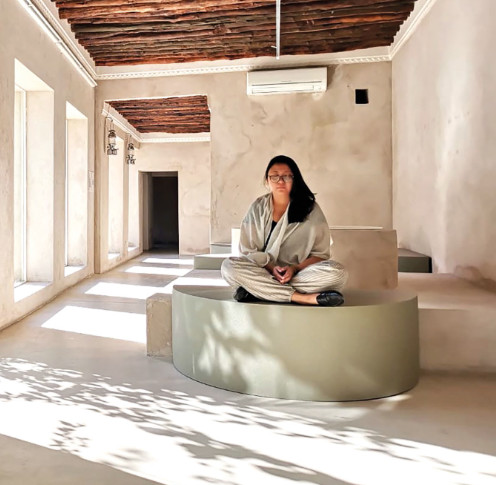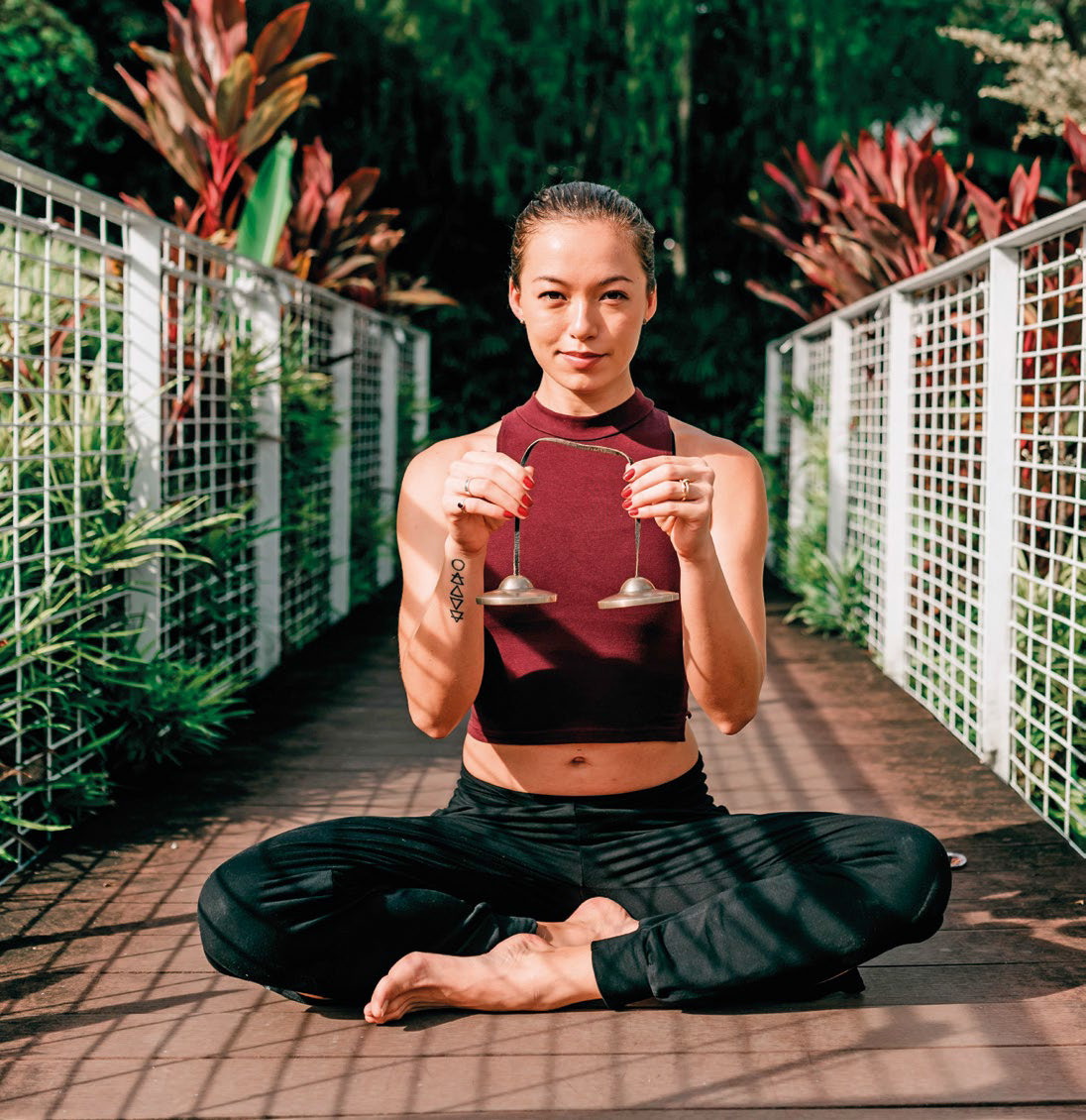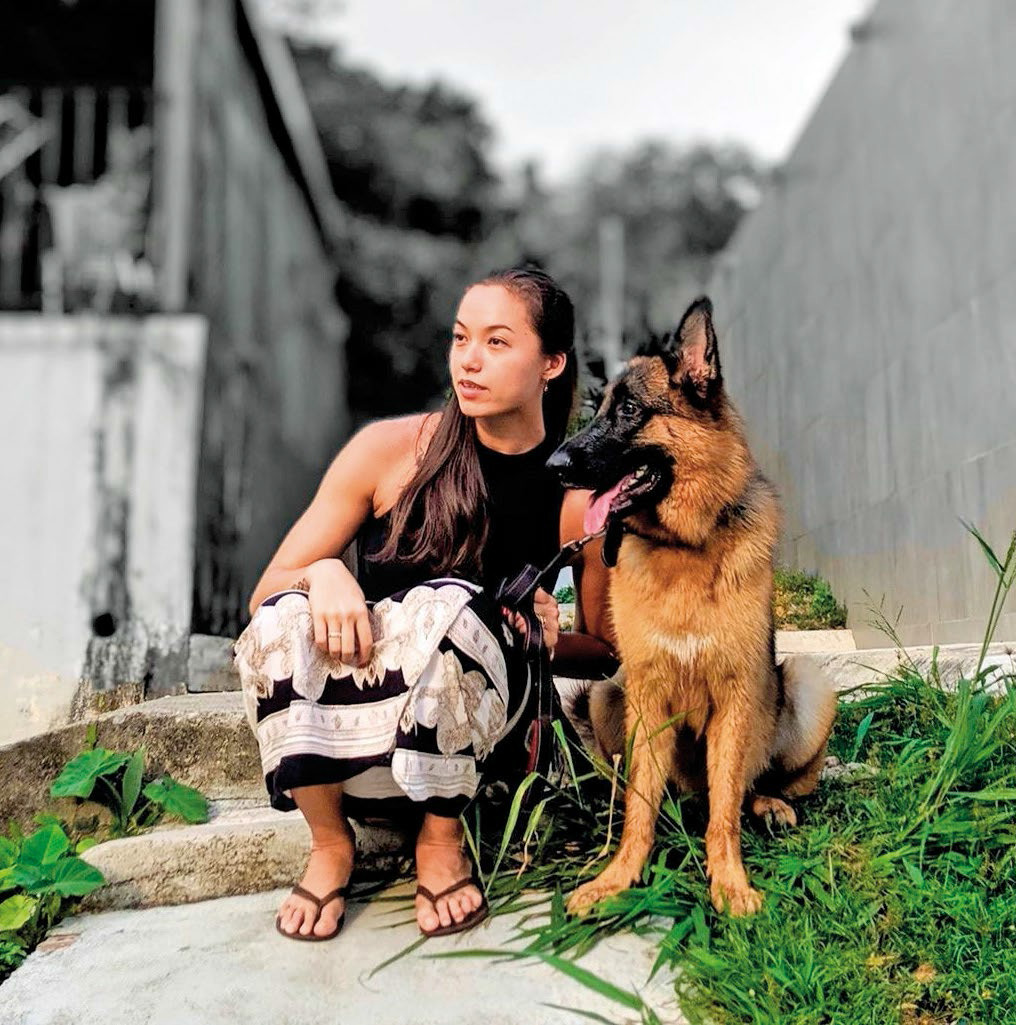Hit pause and take a few steps back.


Hit pause and take a few steps back. In these stressful and anxiety-ridden times, slow living principles can help you keep calm and focus on what’s good for your mind and body.

FERINA NATASYA AZIZ
The founder of meditation studio House of Pause advocates taking time out to do things that are important for your well-being. With more time on your hands now, keeping yourself on the move and being busy aren’t the only ways to feel productive. Instead, you should be more mindful of your body and focus on calming your senses, says Ferina Natasya Aziz, 32, founder of meditation studio House of Pause, which is also a guide to slow living.
“Many Singaporeans are resistant to slow living because they think of it as living life in ‘slow motion’,” she points out the misconception.
“Slow living is really about taking time to do things that are important to you, and to concentrate on those things.”
For instance, while working on your fitness is important, that doesn’t mean you should spend three hours on a HIIT workout.
Ferina says: “Many are going into autopilot mode and pushing their bodies during gym sessions just to feel that ‘high’ or that escape. But they fail to notice the subtle signs of stress.
“Our bodies can only hold that much stress before it accumulates into a strain or chronic pain.”
Ferina speaks from past experience – she was diagnosed with depression and anxiety disorder six years ago.
Then, the former magazine writer lived life in the fast lane and thought it was the only way to go. She didn’t make time to take a break in her daily routine.
“Being busy seemed to be my default. I brushed aside my tiredness, and even when I needed sleep, I’d just carry on with work,” she shares.
“I could go for days with just four hours of sleep each night.”
She recalls: “I wanted to fill my portfolio with as much experience as possible, but I didn’t realise that I was drowning in my own expectations. When I was diagnosed, it felt like the universe was telling me to slow down and find what truly made me happy.”
That became her wake-up call and later, she founded House of Pause.
Ferina’s current routine consists of a weekly “check-in” with herself through journalling, making tea and enjoying the whole process, practising ashtanga yoga daily, and doing other exercises on the side.
While she knows that most women have hectic lives, she encourages them to find that quiet space in their lives – no matter how busy they are.
“I know not everyone has the luxury of time, but what I want to share here is that you need to find your own little activity that will bring the focus back to yourself, instead of what you’re used to doing at a fast pace,” she says.


CHARLOTTE MEI
The nutritionist and food host says there is no reason to rush through things, and that being mindful also means paying attention to mundane activities.
In these pandemic times, it helps to take things slow and stick to a routine that won’t burn you out, says Charlotte Mei, a trained nutritionist who believes in spending quality time with her food, practising sustainability and maintaining good mental health.
She tells Her World: “I tend to be rather ‘kancheong’ (anxious) by nature... just the other day I cut my hand because I was rushing to prepare dinner, when I really had no reason to rush. So I’m always reminding myself to do things at a slower and more mindful pace.”
The 27-year-old, who’s based in Singapore, has found meaning in what she loves – food. She says she started making most of her meals at home last year when she stepped back and slowed down.
“Two years ago, I was working late nights and weekends nearly all the time. Then, I crashed from all of that,” she reveals. “I later realised that I was just trying to prove to myself that I could do all of those things, even when no one pressured me.”
She explains: “Conscious-living has always been part of my upbringing, so it all made sense to me when I started incorporating it in my work.”
Charlotte, who’s also a freelance TV food host, spends her time making cooking videos on her Instagram (@thecharlottemei) and Youtube channel (Charlotte Mei). She grows her own herbs, brings her own containers out, and is currently experimenting with an indoor and apartment-friendly compost bin.
She shares: “It’s something new, but it’s definitely taught me patience. I share my progress on my Instagram account and I’ve been learning a lot from my followers! I check it every now and then to see if my waste is composting properly.”
“It’s important to read the labels on your food, so you know what goes into your body. That alone can save you from a lot of long-term health problems,” she explains.
“Other than that, I take time out for myself. During the day, I try to have my meals undisturbed. It’s oddly comforting to cook alone and focus on the food I’m eating.”
Charlotte also advises others to be present, even in the most mundane activities like dishwashing or showering.
It may seem daunting to pace back immediately, but Charlotte says there are a few easy ways to take it slow – slowly.
“You can spend some time with yourself when you wake and before going to bed. Use the time to either set your intention for the day ahead, or to look back and reflect on the day, and practise gratitude,” she says.

“During the day, I try to have my meals undisturbed. It’s oddly comforting to cook alone and focus on the food I’m eating.”

"Stephanie taking in the sights while trekking through Kalinchok, a former village development that is now a rural municipality in north-eastern Nepal."
STEPHANIE BOVIS
It’s absolutely fine to want to do less, or even nothing at all, on lazy days, says the yoga instructor and events emcee.
The idea of “getting many things done ASAP” can add unnecessary pressure with many feeling the need to continuously push themselves to be more productive.
But it’s actually okay to schedule “lazy days” and some time out. Stop what you’re doing and pause for a bit, says yoga instructor Stephanie Bovis. Instead of wanting to be “more-something”, focus on one thing and finish it properly. Let that become part of your routine, and you’ll master a new skill without being distracted by other things.
“Because of the pandemic, many people are trying to do as many things as they can with the extra time at home,” Stephanie observes. “While that’s fine, it can become a productivity contest. That itself is stressful on so many levels.”
The 31-year-old adds: “Having ‘lazy days’ on purpose is something that I’ve been doing. I focus on one task for a long period of time, but that doesn’t mean I’m not productive at all.”
And it’s absolutely fine with having nothing on the plate at times.
Stephanie says: “I completely understand when people tell me that the circuit breaker is giving them cabin fever and anxiety.
“The feeling of having nothing to do can suddenly become strange. So people are also taking the moment to pick up a new skill and broaden their knowledge by taking online courses.”
Stephanie points out that people shouldn’t stress themselves out by creating expectations on how this time should be utilised.
An avid traveller, she used to spend a lot of time on social activities and moving around. If she found herself in an idle mode, she’d feel bored and uncomfortable.
But after exploring what she could do to maintain inner peace, Stephanie started teaching yoga four years ago and she credits it with helping her slow down. Now, the certified yoga instructor also conducts virtual classes for her students.
She says: “With fast-paced exercises, you try to do as many repetitions as you can under 30 seconds. That can be stressful for some people. With yoga, you learn how to be patient.
“Holding a pose, or simply getting into the starting position and staying there – it’s already calming and satisfying.”
Stephanie believes that taking long and short breaks in between routines can help people to slow down their pace.



“Having ‘lazy days’ on purpose is something that I’ve been doing... but that doesn’t mean I’m not productive.”

Slow-living Prepared Her For The Pandemic Getting used to having less rather than more isn’t a bad idea, says the Los Angeles-born sustainability advocate and author of zerowastechef.com
51, who lives in an “intentional” community that practises a mindful lifestyle.
"Anne-Marie hiking at the Calaveras Big Trees State Park in California."
It’s interesting how people are using this time to take note of their bad habits. It has forced people to do more with what they have on hand, like exercising rather than shopping, and wasting as little food as possible due to the sparse supermarket trips.
The idea of not having much shouldn’t be a negative one. Instead, we should be satisfied with what we have instead of always wanting more.
My lifestyle prepared me for the pandemic. I’m using what I find around the house and finishing “old” food before it turns bad.
My daughters and I love to cook and I think it’s important to pass on these habits to the younger generation. These days, many kids want to go as fast as possible, but I think it’s the speed that’s causing us to forget things like being in touch with yourself and taking time to appreciate what your have.
And, knowing what goes into your food and where it comes from is what many of us have forgotten. I go the farmers’ market every week and this is also a form of relaxation for me.
I live in an “intentional” community in San Francisco Bay Area. We grow fruit trees for the neighbourhood to share. The fruits from the trees are put into a common box, and anyone in the neighbourhood gets to pick from the box at the farmers’ market.
Most of us would rather shop at the farmers’ market than buy mass-produced items. That way, we control our output of waste and help the community.
This mindset has helped my community get through times like this. It has fostered a spirit of sharing, and we’re always reminding one another to contribute. It’s not a competition of who contributes more, but more of a lifestyle where we help in any way we can.
Even though the pandemic has put a stop to the farmers’ markets (for now), we’re still sending homemade care packages to each other. I’m now staying at my parents’ home in Canada and I’ve been cooking a lot for them.


Clockwise from right: The fresh produce grown by the neighbourhood folks; the community garden where the produce is grown; pickling vegetables; and making delicious homemade treats.























